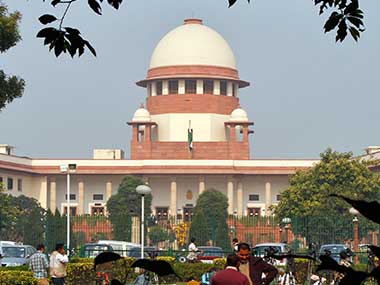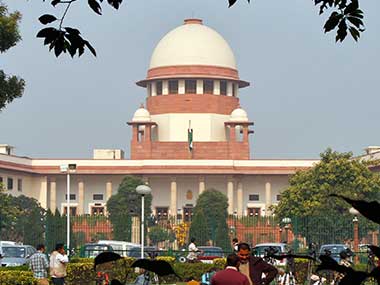On 21 March, the Bombay High Court ordered the immediate release of advocate Rizwan Siddiqui, who was arrested last week for illegal possession of the call detail records (CDRs) of Bollywood actor Nawazuddin Siddiqui’s wife. The court said that his detention was “unlawful”, “high-handed”, and in “clear contravention of the law”. It also directed the state’s home department to initiate disciplinary proceedings against the police officers concerned.
Consider also the Ryan International School murder case. In the initial media frenzy, the Haryana Police wasted no time in arresting and claiming a “confession” from the school bus conductor, Ashok Kumar. The Gurgaon District and Sohna Bar Associations passed resolutions refusing to defend him. Kumar was demonised as a barbaric murderer, a paedophile. It needed the CBI to dig out the truth and arrest a Class XI student of the same school. Kumar was released, but his reputation was murdered.
Then there is the Arushi Talwar murder case, India’s ‘Bermuda Triangle’, a deeply-unsettling mystery that has become drawing room gossip. After the Hon’ble Allahabad High Court’s acquittal of the Talwar couple in October 2017, the Supreme Court admitted an appeal against the verdict. Making scathing remarks against CBI judge Shyam Lal, the Allahabad High Court judgment said, “The learned trial judge has prejudged things in his own fashion, drawn conclusion by embarking on erroneous analogy conjecturing to the brim on apparent facts telling a different story propelled by vitriolic reasoning, ….the trial judge was unmindful of the basic tenets of law…."
Such miscarriages of justice run the entire gamut of the criminal justice system in India. Be it the police, investigators, advocates, media, even the judiciary — the weak and powerless find the system stacked against them. Filing an FIR is a struggle; the recent Mohammad Harris Nalapad case in Bengaluru being a case in point. Chargesheets are almost never filed within the stipulated 60-day period. Evidence is often tampered with, either deliberately or through callousness.
[caption id=“attachment_4329037” align=“alignleft” width=“380”]  Representational image. Reuters[/caption]
Remember how everyone freely walked around the scene of crime where Gauri Lankesh was shot dead? It is no coincidence that most acquittals occur due to lack of evidence.
Impact Shorts
More ShortsThe judiciary too is losing credibility. Public memories are short, the media circus even shorter; by the time the acquittal occurs (if at all it does, assuming the accused actually manages to find a good lawyer), years have passed, and an innocent person’s life, and reputation are ruined.
This brings us to the question of accountability and credibility of criminal justice delivery system in India. Rebecca Mammen John, senior advocate who represented the Talwars, shares her thoughts on the criminal justice delivery system in India.
What ails the criminal justice delivery system in India?
There needs to be a serious understanding of how badly the justice delivery system works in our country, for people who prosecute or defend. Victims of crimes who are prosecuted don’t get justice fast enough, if at all. While people implicated in cases or facing trial have the constitutional right to defend themselves; those rights are routinely negated. Nobody talks about a rape case in Jharkhand or the rape and murder of a child in Chhattisgarh.
Where has the judiciary failed?
People look up to the judiciary as the last bastion which corrects the wrongs of the executive and legislature. To a great extent, the judiciary has acted as a vanguard. But the biggest area where it has failed is the criminal justice delivery system. We must be sensitive to the rights of human beings, we forget that even people accused of brutal crimes have rights which must be upheld. Irrespective of the case, due process must always be followed. I think the judiciary doesn’t follow due process in many cases.
The report of the Death Penalty Clinic at the National Law University in Delhi, headed by Anup Surendranath, analysed people who have been sentenced to death. The analysis showed that inevitably these are people who have not been represented or been represented very poorly; people with little or no means to defend themselves, and therefore they become victims of the system. I think the system is unfairly skewed; a large majority of the Indian population is poor and underprivileged and don’t have access to justice. There are so many cases where the quality of legal representation people receive is pitiable.
What is the role of civil society in criminal justice delivery?
Soon after the Mathura rape case verdict of the Hon’ble Supreme Court, letters were written by four professors of Delhi University, spearheaded by professor Upendra Baxi. They challenged the rationale of the acquittal of the two policemen who were accused of raping a tribal woman inside a police station. The rationale was that she didn’t resist or scream.
The professors wrote that submission is not consent; she was in a custodial situation. They said “your lordships spent months deciding the Keshavananda Bharathi case over the right to property, but when it came to the constitutional right of this woman, you took so little time and ruled in such an insensitive manner”.
This open letter is of great jurisprudential value because it attempted to fix accountability and was the first time open conversations with the judiciary began. Nothing came out of it in the case. Subsequently, there was a massive public outcry, and in 1983, the Code of Criminal Procedure (CrPC) was amended to address custodial rape situations.
Are investigating agencies working effectively enough?
Investigation agencies in the country are given too long a rope by everybody, including the media and the judiciary. If there is irrevocable evidence that I have not committed the crime, why should I face trial?
I have seen this case after case, they probably pick up the right person but don’t collect evidence properly and are lethargic in the way they prosecute. Ultimately, there is nothing in the case and the accused are let off. Even people who are arrested and prosecuted on valid grounds get acquitted due to sloppy investigation. So instead of being neutral, courts tend to fill up the gaps that the prosecution has created. That’s dangerous; we don’t want courts that act as a super prosecutor, that’s not their job.
How do you fix accountability of the judiciary and agencies involved?
There must be a compulsory departmental enquiry, particularly where acquittals happen and judgments are passed challenging the findings of the investigating team, either on grounds that somebody was framed or some evidence was fabricated. That departmental enquiry report and action taken report must be placed before the court that passed the judgment.
I think judicial orders must be accompanied by a further direction that there must be departmental enquiries against officers who have failed in recording proper evidence. Courts must call for records periodically seeking action against these officers. I also believe that the police force, CBI, NIA, etc must take such a verdict passed in the right spirit. Institutions close ranks, and huddle into a cozy club-like atmosphere. There’s too much ego, after all you are the State, and there is no personal angst.
What’s your take on reports of delays in producing evidence?
In the 2005 Diwali blast case, I defended one of the accused, Mohammed Rafiq Shah. There were four others involved. Shah was acquitted in 2016 after being in uninterrupted custody for 12 years. He was a college student when he was taken into custody; I saw him aging. The allegation against him was that he had physically planted a bomb in a bus near Sarojini Nagar. The Delhi Police’s special cell had a very specific case — that Shah had come from Kashmir to Delhi, was physically present on the day and at the time the explosion took place, and planted the bomb himself.
From the time he was taken into custody, he shouted hoarse that he was in class at that time, the chargesheet filed mentions of this. In 2006, we sent a letter to Kashmir University to verify this and present it before the court. But it was never produced in court. We then summoned the record in defence and categorically proved that at the time and on the day when the bomb went off in Delhi, the boy was in class.
Finally, based on this proof, the court let him off, but what is the point? Who will compensate him for the 12 years he spent in jail for a crime he did not commit? It is such a dehumanising experience.
There’s also inordinate delays in forensic labs sending reports. Doesn’t it affect the process?
Forensic labs in our country are limited and terribly overworked. Forensic reports have to be given instantly. Reports of viscera sent for examination don’t come out for eight months. The Malkhanas look like a garbage dump.
While it’s fashionable to blame the police, their hands are also tied. If reports trickle at this pace, how do they put the chargesheet together? Look at it outside the prism of the metros, in the smaller towns. There is a monumental incompetence across the board and a complete breakdown of the system.
But to say something is horribly wrong with our judiciary is not fair; they work with constraints of a system which doesn’t allow them to do much. They are terribly understaffed, the ratio between the number of cases and the number of judges we have is skewed. It is humanly impossible for any judge to finish the cases on his roster.
There are also knee-jerk reactions: One incident happens, institutional response creates fast-track cases. They pull out a judge from the general pool to put him there and don’t appoint new judges. Judges in the general pool have to deal with additional baggage.
What corrective measures would you suggest?
The Delhi High Court looks into judgments and it does affect the ACRs of judges. Court proceedings should be made public. If people were to see these bulldozing prosecutors, absolute misbehaviour of defence counsels particularly in rape cases, the lack of intervention by the judges and his biases — if these become public knowledge, there will be more attempts to straighten it out. We have forgotten the basic tenets of criminal jurisprudence, the presumption of innocence. We have lost compassion.


)

)
)
)
)
)
)
)
)



